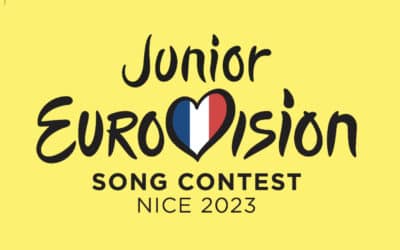The Liverpool City Region had a £54.8m economic boost as a result of hosting the Eurovision Song Contest, according to new research.
The Multi-Agency Evaluation Steering Group led by Liverpool City Council, commissioned 5 in-depth independent evaluations examining the impact of the competition.
The interim results of those have been announced today.
“The whirlwind that was Eurovision, gave this city an unparalleled stage where it could showcase not just its organisational prowess, but also its heart and soul,” said Leader of Liverpool City Council, Councillor Liam Robinson.
“From the outset, we put plans in place to evaluate everything we programmed in order to have a thorough understanding of the impact of major events.
“The visitor and economic figures speak for themselves – jobs were created, local businesses were on the receiving end of a much-needed boost and hundreds of thousands of people came to the city, had a great time and are more than likely to return again.”
The financial impact included money spent in restaurants, accommodation providers, shops, bars and transport networks.
In total 473k people went to Eurovision events in the city, with 306k additional visitors heading to Liverpool to be part of the celebrations.
In May, 175k city centre hotel rooms were sold, the best month since 2018.
The report also looked at the cultural impact of hosting the competition on behalf of Ukraine.
Education and community programmes, EuroStreet and EuroLearn, engaged with 367 organisations and directly with 50k. The overall programme is estimated to have reached 2m people.
EuroFestival, a fortnight-long culture festival curated by Culture Liverpool, presented 24 brand new commissions, 19 of which were in collaboration with Ukrainian artists.
In total 328,346 people engaged with this programme – 557 artists, 1,750 participants involved in a commission and an audience number of 326,039.
The official Eurovision Village, located at the Pier Head attracted 250k visitors across the ten days it was open, with the ticketed final selling out within hours.
“We have spent years working towards what we all experienced in May – we cut our teeth during our European Capital of Culture year and from that point we have grown exponentially in confidence and ability as year-on-year we continue to deliver events that rival any other on the world stage,” added Liverpool’s Director of Culture, Claire McColgan CBE, said:
“The pandemic was a real line in the sand for us, and undoubtedly Liverpool’s role in leading the charge on the reopening of venues nationwide made us stand out from the crowd – we are recognised as a city that can deliver unforgettable moments, safely, quickly and with a scouse panache that simply can’t be replicated anywhere else.
“Quite simply, it was an honour to deliver Eurovision on behalf of Ukraine and the UK. I’ve never known time move so fast as it did across those seven months and it has been a real pleasure to digest these impact reports and relive the experience once again and reassure myself it wasn’t just a crazy dream! They underline the fact Liverpool has the skill, agency-wide teamwork and the creativity to deliver time and time again.”
News coverage
From October 2022, when Liverpool was announced as host city, until the end of May 2023, more than 280k pieces of global news coverage were generated.
The 3 live BBC shows were watched by 162m people.
Impressions of Liverpool
The study revealed that 89% of visitors questioned said it was a safe event and 88% praised its inclusivity.
96% of those surveyed said they would recommend Liverpool as a destination to visit and 42% of overseas visitors said the city’s staging of the event had a positive impact on how they viewed the UK.
The official Eurovision Fan Club – the OGAEs – carried out a survey and found that 99% of their members felt welcomed in the city and 98% “loved the undeniable festival atmosphere.”
Residents and Volunteering
80% of local residents said they thought it was important for Liverpool to host the event, while 93% said they were pleased with how the city delivered the event.
In total 475 people provided 12k hours of volunteering during the event. 90% came from the North West.
A partnership between BBC and Liverpool Institute for Performing Arts saw 145 students become part of the Eurovision production – in roles such as on stage dancers in the live shows, costume makers or in the TV production team.
“When the BBC selected Liverpool to host the Eurovision Song Contest 2023 we knew that the city would deliver with a passion and enthusiasm that was second to none,” said Phil Harrold, BBC Chief of Staff and Chair of 2023 City Selection Group.
“The incredible numbers proven in this research, coupled with our own record-breaking audience figures, demonstrate that 2023 was indeed the most successful Eurovision ever and is testament to all who played a part in bringing this year’s Song Contest to life.”
The independent reports were:
Economic Impact – Commissioned by Liverpool City Region Combined Authority and funded by Arts and Humanities Research Council. The research was compiled by AMION Consulting.
Community and Wellbeing – Commissioned by Liverpool City Council and funded by Spirit of 2012 and the Department of Culture, Media and Sport (DCMS). The research was carried out by University of Liverpool.
Cultural Diplomacy – Commissioned by Liverpool City Council and funded by British Council and DCMS. The British Council led on the research along with the University of Hull, and consultants from Universities of Brighton, Southampton and Royal Holloway (University of London).
Nightlife – Funded and compiled by Liverpool John Moores University.
Multi–Agency Working – Led by Edge Hill University.
Along with these reports, the BBC has commissioned its own Eurovision Highlights Report.












